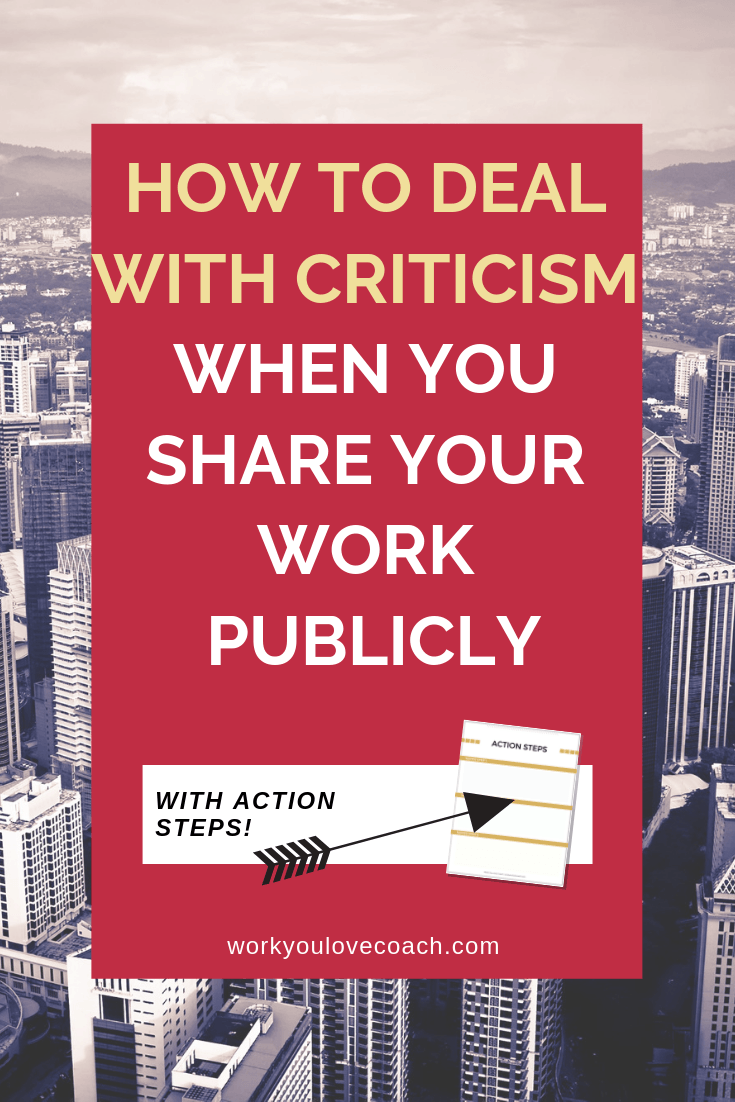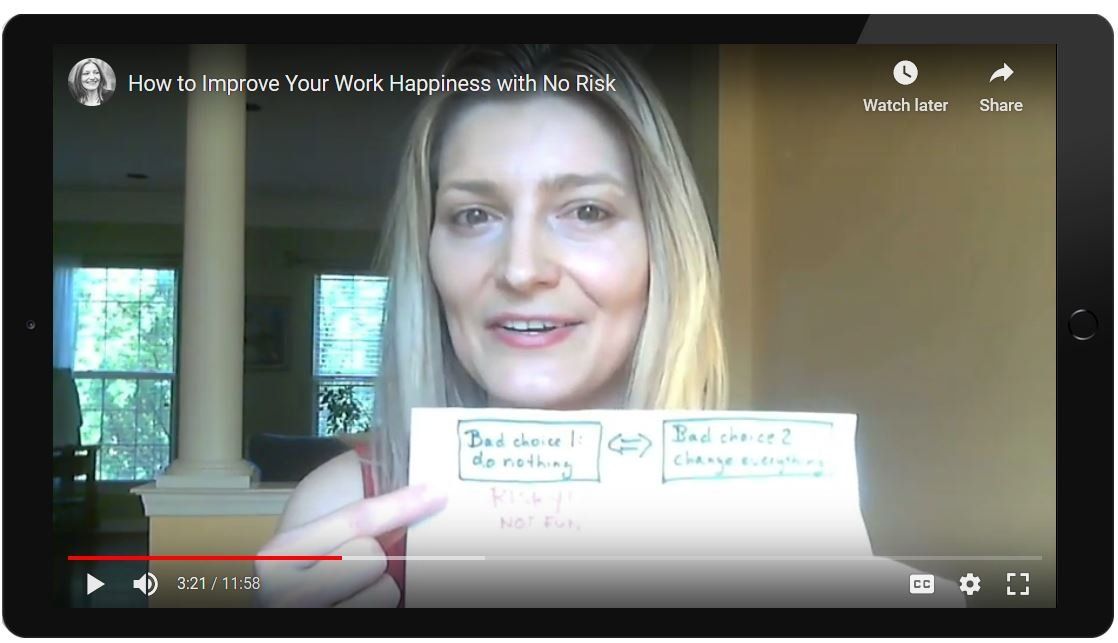How to Deal with Criticism When You Share Your Work Publicly
Here's a question I often hear from clients when they first start, say, blogging about their passion: “I feel really excited about this. But, what if I’m getting criticized by someone? I’m afraid of that happening.”
When they bring up that concern, I like to point out…
Two things
1. What to keep in mind about criticism
Getting criticized can also mean that you have found your voice and that you have stopped playing it overly safe. This is a viewpoint shared by many, many authors!
For instance, Cole Schafer puts it this way: “Many of us live in hopes to create art that receives 100% approval, and what we create isn’t art, but instead something very empty.”
A.J. Juliani points out that “when you take risks, criticism will follow. In fact, I’d go as far as saying that if no one is criticizing your work, then it might not be worth it.”
And, according to Anthony Moore, a lack of critics can be a sign of the following: “Your message probably isn’t focused enough. You’re probably still operating out of fear, not confidence.”
So, as long as you also have people who love what you’re creating, criticism can actually be a good thing.
The last thing to keep in mind about criticism is that it’s just part of the game. As Mayo Oshin points out: “Till date, no human being or great piece of work has escaped criticism and hateful comments. For example, one of the most popular self-improvement books of all time, 7 Habits of Highly Effective People, has accumulated close to 425 negative reviews and comments on Amazon alone (that’s 10% of it’s total reviews!).”
2. What to keep in mind about the critic
I also like to share with them Brené Brown’s quote about critics: “If you’re not in the arena also getting your ass kicked, I’m not interested in your feedback.”
(By the way, I never thought about it before, but maybe that would be a great copy-and-paste reply to insulting comments? If you ever try this out, please comment below and tell me how it went. I’d love to know.)
With all that being said, let’s move on to…
Taking action
Grab a pen and paper. 📝Then, take a moment to go through the following process.
(If you want to get the most out of this or if you're afraid of getting
stuck, get the "Taking Action Worksheets" and begin by filling those
out.)
- Pick one thing you’d like to get feedback on
Ideally, pick something that you’re at least a bit afraid to share with others. For instance: “I’d like to get feedback on the short video I recorded before sharing it publicly. And, because it’s my first video, I’m kinda scared.”
- Brainstorm 5 people you could ask for feedback
For instance: “So, I actually know a lot of people who have experience with video. Paula is super-professional with it. Dirk, Nadine, and Craig are also pretty good with it. And, I can always ask my business coach Estelle. There, I already have my list!”
- Pick 2 (or more) people to reach out to
Take a look at your list and decide whom to ask for feedback. Put an asterisk (*) behind their names. For instance: “Dirk is typically rather blunt with his feedback so I don’t want to start by asking him. And, Paula would be great but I know she has way too much to do right now. So, that leaves Nadine, Craig, and my business coach Estelle. I think I can write to all of them.”
- Decide if you want to ask for gentle or blunt feedback
For instance: “Since this is my first video, I’m not ready for blunt feedback yet. I think that might discourage me at this point. So, I’ll tell them that I’m just getting started so I’d love it if they could give me gentle feedback and also tell me what they like about the video.”
- Decide if you want general feedback or specific feedback
If you want general feedback, you could ask: “What are your improvement suggestions?” If you want specific feedback, it could look like that: “Do you have any suggestions for connecting more strongly to the audience?”
- Take action and follow through on your plan by reaching out to the people you picked
The idea💡
If you are sharing your passion and purpose publicly, consider your relationship to criticism and explore how to deal with criticism in a way that works for you.
Allow yourself to receive constructive feedback from others that can help you become better while disregarding those who only want to discourage you without also putting in the work.
In closing, I’d like to share what Stephen Brewster wrote about getting criticized as an artist. His insights also apply to any other pieces of work: “YOU ARE NOT YOUR ART! You are an artist but your identity is not found in what you make but in who you are becoming.”






